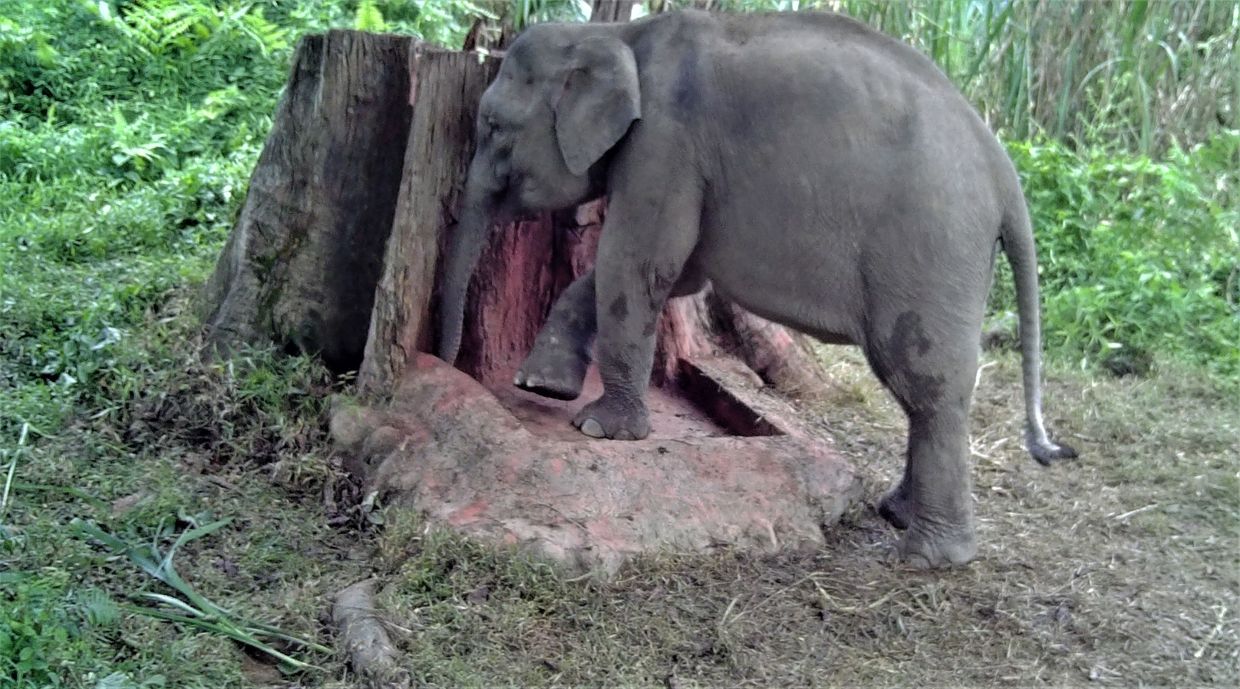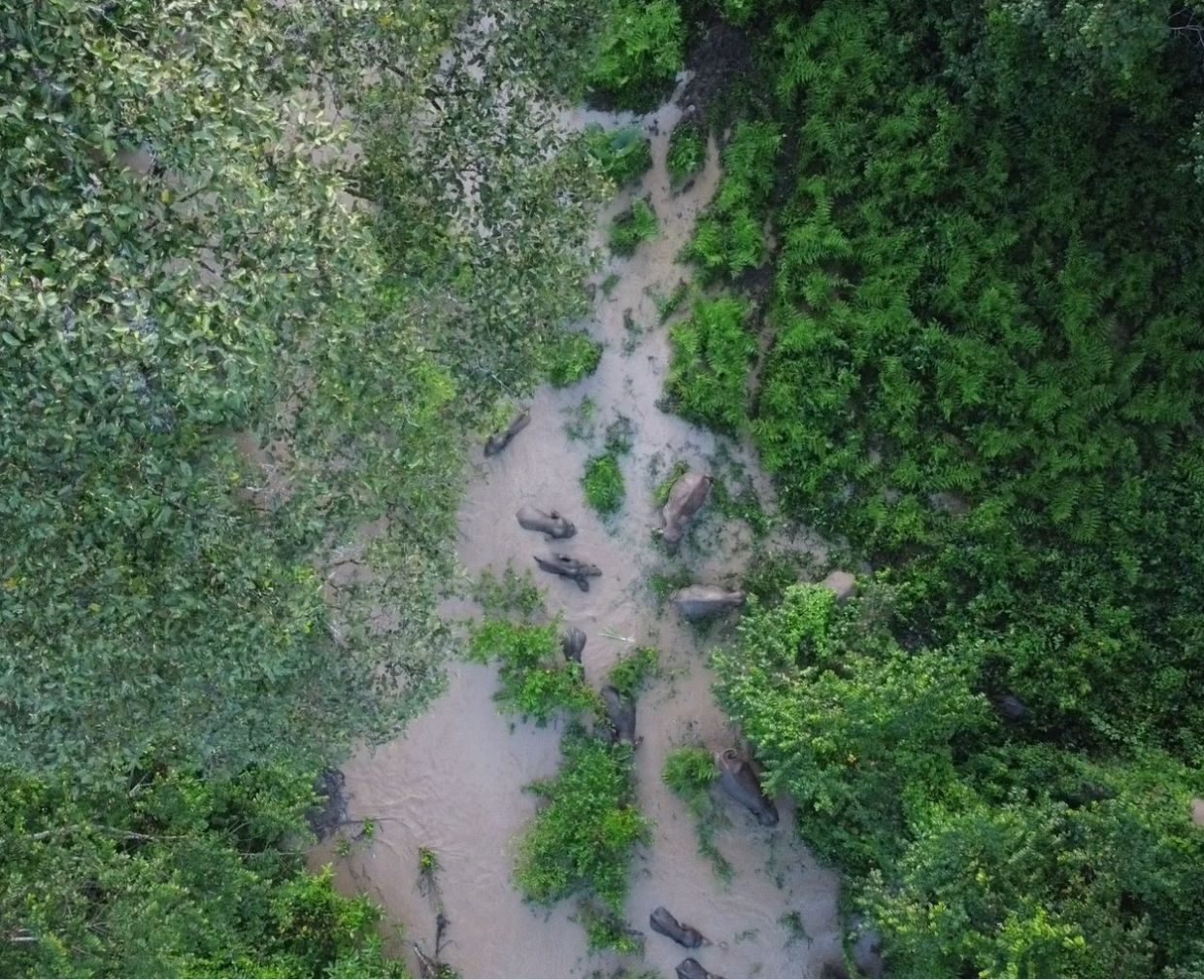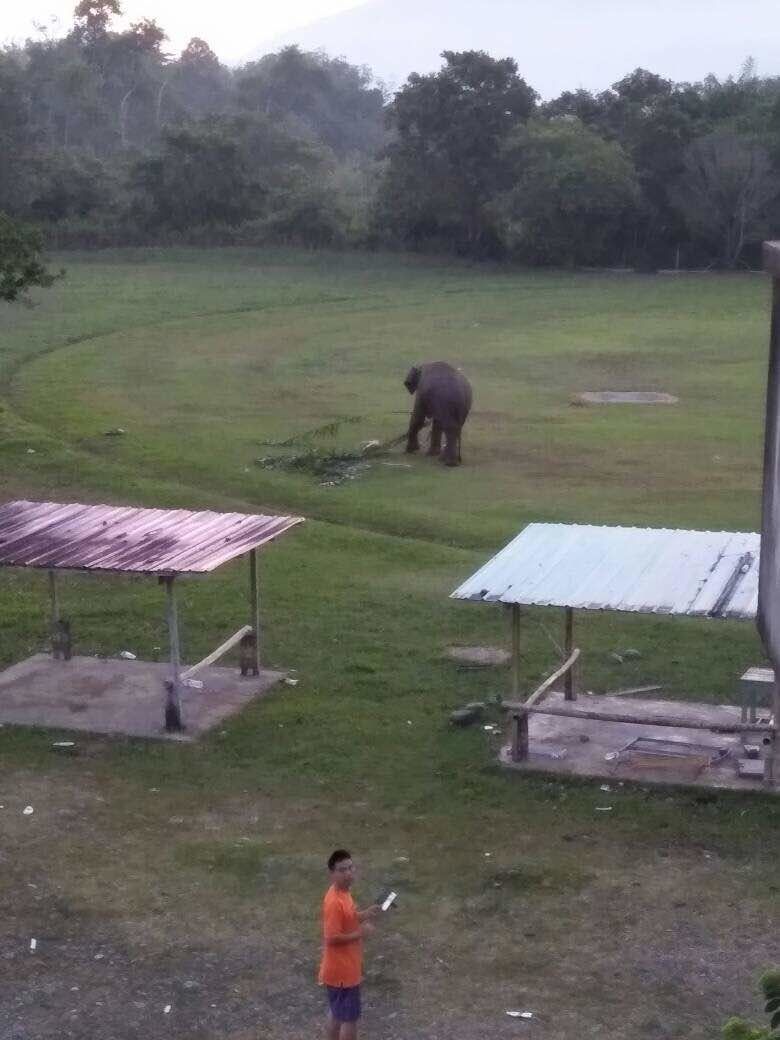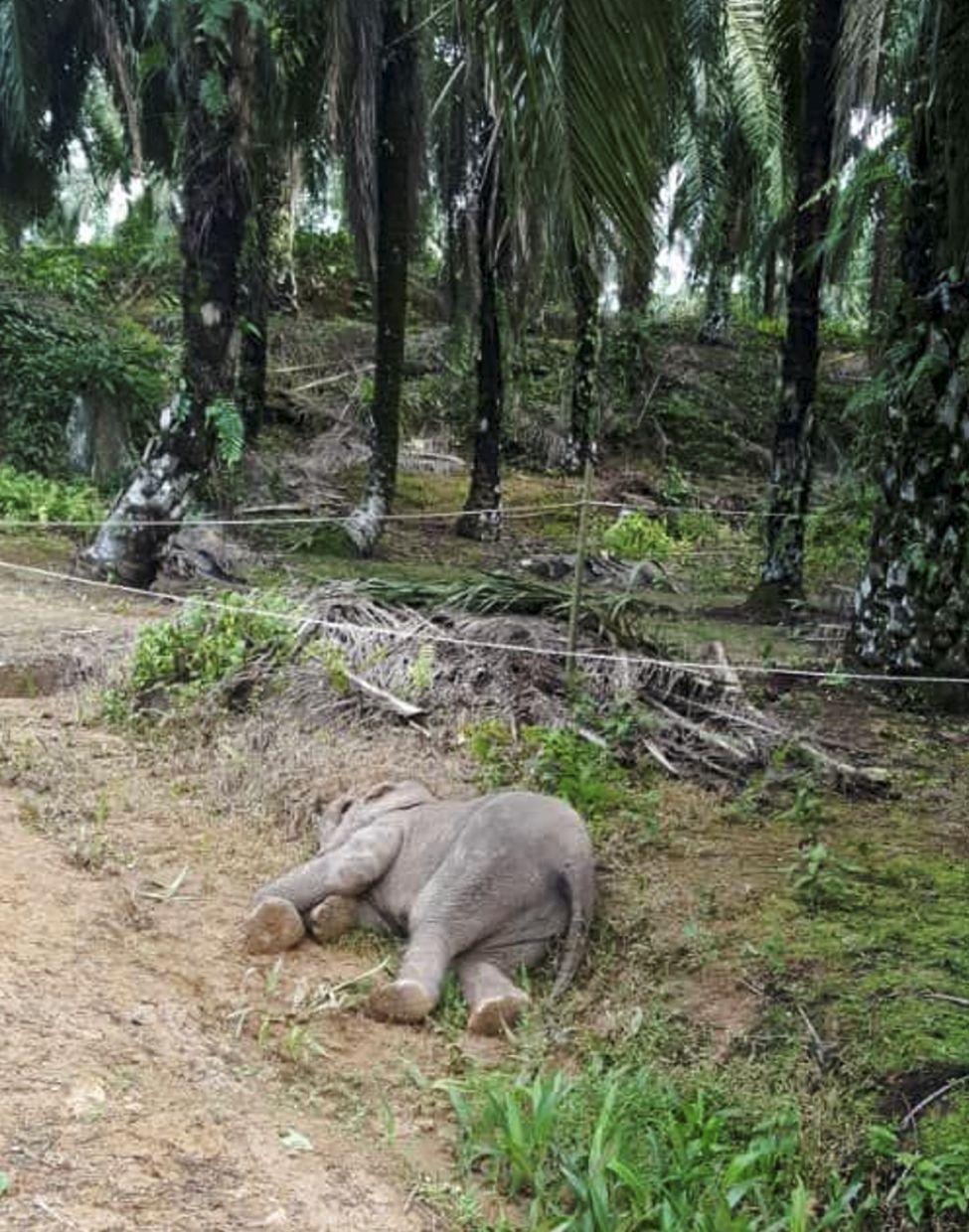A female believed to be four to five years old checking out the artificial mineral lick set up in Sabah's Malambabula Wildlife Habitat Improvement Area by the Bringing Back Our Rare Animals (Bora) project team. — Tabin Wildlife Reserve
IT was a small step by conservationists but it might be a giant leap towards the long-term preservation of Sabah’s gentle giants, the Bornean elephants.
Wildlife managers at Sabah’s east coast Tabin Wildlife Reserve began planting grass that elephants eat to entice the animals into a safe area and keep them from encroaching into adjacent plantations in search of food. The herds have long been a problem for plantations, which lose young trees to the animals. Even fences and moats can’t keep a hungry elephant out.
Get 30% off with our ads free Premium Plan!











